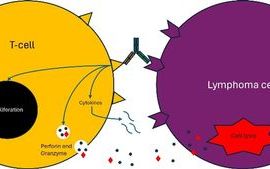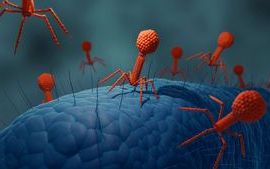- Published:
- 15 July 2024
- Author:
- Professor Angharad Davies
- Read time:
- 3 Mins
This really is a very exciting time to work in pathology, if only one can step back for a moment from the intense pressures and workforce challenges of the day-to-day. The past few years have seen step-changes in life science technology and what can be achieved in diagnostics and therapeutics. So, our theme for this issue is pathology at the cutting edge.
Our theme articles take a closer look at some of these advances and their promise of major impacts on our specialties and our patients, which are already starting to be realised. Notably, all stem from Nobel-prize winning work.
At the end of last year, the Medicines and Healthcare products Regulatory Agency approved the use of CRISPR-Cas9–based therapy for certain cases of sickle-cell disease and thalassemia – a world first. While not yet NICE-recommended, this represents an enormous milestone, 11 years after the first publication that described the technology, which led to Jennifer Doudna and Emmanuelle Charpentier being awarded the 2020 Nobel Prize for Chemistry. In this issue, Dr Subarna Chakravorty, Consultant Paediatric Haematologist at King’s College London, explains its application in sickle cell disease. Dr Hilary Longhurst, Senior Medical Officer in Immunology, University of Auckland, describes the state-of-the-art in trials to treat hereditary angioedema. For a refresher on CRISPR-Cas9, take a look at Dr Longhurst’s explainer.
The advent of monoclonal antibodies was a dramatic breakthrough for medical science and resulted in the award of the Nobel prize for Medicine or Physiology in 1984. Fast-forward to the present day’s new generation of monoclonals: bispecific monoclonal antibodies, which have 2 arms that recognise separate antigens. Dr Wendy Osborne, Consultant Haematologist at Newcastle on Tyne Hospitals, and Haematology Specialty Trainee Dr Euan Haynes, expand upon the use of bispecific antibody therapies in patients with relapsed or refractory diffuse large B-cell lymphoma.
Meanwhile, a ground-breaking advance in vaccinology – yet another Nobel prize-winning development – has been the advent of mRNA vaccines. These, of course, shot to prominence during the COVID-19 pandemic, with which they are inextricably associated in the public mind. But their potential spans far beyond infection. While we are familiar with the idea of using vaccines to prevent cancer by preventing oncogenic infections such as HPV, their use to treat other cancers is a relatively new concept to many. Professor Justin Stebbing, Professor of Biomedical Sciences at Anglia Ruskin University, along with medical student Dasha Majra, explain more.
Phage research has enabled us to explore the core biology of all life. It led to the first evidence that genes are composed of DNA. Its fundamental importance is reflected in the fact that it has led to several Nobel prizes over many decades. The use of bacteriophages to treat infection is not a new concept, having been attempted since even before the discovery of penicillin, but hitherto was not successfully harnessed. The rise of antimicrobial resistance and the impending public health crisis it threatens has renewed efforts to exploit phages as an anti-infective therapy. Dr Josh Jones, of Edinburgh University Medical School, updates us on the state of play. We also hear from Dr Ben Swift, Lecturer in Antimicrobial Resistance at the Royal Veterinary College, and winner of Applied Microbiology International’s Basil Jarvis prize 2023. The prize was awarded for his work in developing new diagnostics that employ phages to detect mycobacterial infections in veterinary medicine.
The curiosity, imagination and ingenuity of those who have laid the foundations of these advances cannot fail to inspire profound admiration. As pathologists, we have the privilege of being among the first to experience first-hand their impact on medical practice.
Return to the July 2024 Bulletin
Read next
An update on mRNA cancer vaccines
15 July 2024
CRISPR-Cas9 – an explainer
15 July 2024





